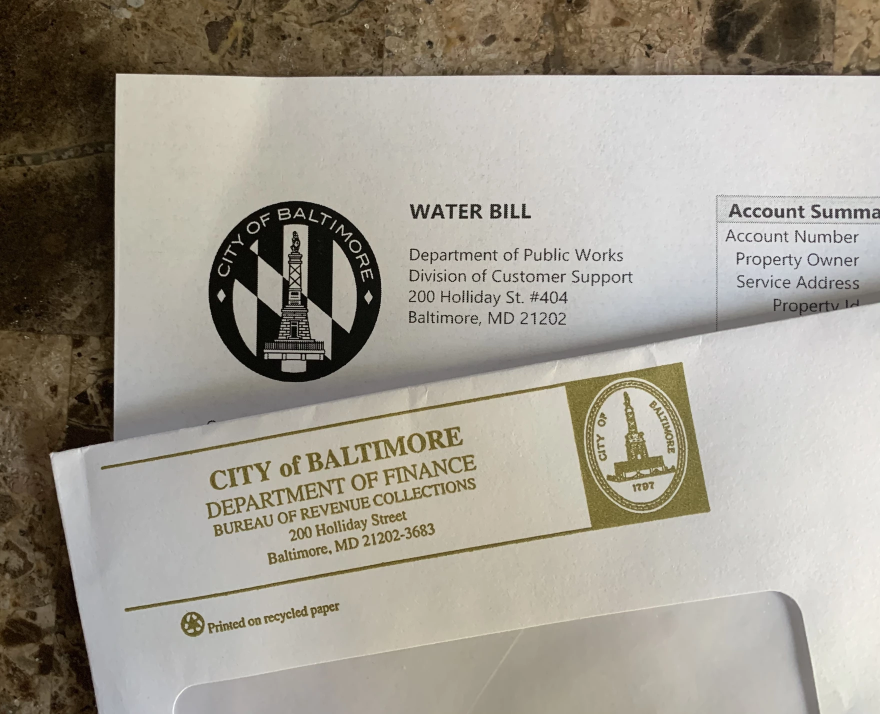Next month, the Board of Estimates will hold a public hearing and likely vote on sewer and water rate hikes for Baltimore City residents. Sewer rates would go up 15% and water by 3% in February under a plan before the board.
After that, rates for both sewer and water each would increase by 9% in FY 2026 and 2027. Stormwater will also be increased by 3% in FY 2026 and again in 2027.
The rates will be discussed during a Wednesday, January 22nd meeting of the BOE and written testimony will be accepted until noon on January 21st.
Baltimore City Infrastructure czar Matthew Garbark said during Wednesday’s meeting that the raises are due to a combination of inflation, emergency projects, and a downgrade in the city’s sewer and water bond ratings. In two years, chemical prices increased 230%, he explained.
“We are treating the same volume. These are just the cost increases that have increased because of that,” said Garbark.
High volume users could see a $20 increase in their water/sewer bills.
If approved next month, these increases would replace rate increases set by a 2022 rate schedule that should have carried through until the end of the fiscal year in June. At that time, city officials boasted of the “modest” rate increases.
The proposed sewer increases currently before the Board of Estimates are the largest in over a decade.
The Department of Public Works is still contending with two consent decrees.
In 2002, Baltimore entered into a consent decree with the U.S. Department of Justice, the Environmental Protection Agency and the state environmental department to address sewage overflow from the city’s wastewater collection system. Projects addressing full compliance with that decree are expected to go on until December 2032.
Then, in 2023 Baltimore entered into a second decree, this time with the State of Maryland, over pollutant violations from the Back River and Patapsco wastewater treatment plants.
“I can't stress that enough, the chemical spikes that we've been seeing have been extraordinarily high. That is across the entire industry,” said Garbark.
During Wednesday’s meeting, Mayor Brandon Scott enquired whether the costs could have been raised more slowly over time.
“One of our first questions to the director and his team is, ‘Why didn’t you tell me about this sooner?’” Scott said afterwards in a meeting with reporters.
Reporting from The Baltimore Banner suggests that the mayor’s surprise is unlikely.
“But Baltimore’s financial disclosures, required when a city borrows money, suggest city officials have known since at least February that a sewer rate increase would be necessary for the current fiscal year,” wrote Emily Opilo for The Banner. “Projections included in an update to an annual disclosure filed that month state that an 8% sewer rate increase was factored into anticipated revenues for the current budget year that began in July and in next year’s budget.”
The proposed rate increases were made public in mid-December in the BOE agenda.
Concerns for the city’s most vulnerable residents
Rising prices of essential services like sewer and water are likely to put a strain on Baltimoreans with already strained resources.
“It's a pretty historic rate hike not to have any type of rate analysis to go with that rate,” said David Wheaton, a policy council for the NAACP Legal Defense and Education Fund, one of the groups that is part of the Baltimore Rights Water Coalition.
Wheaton said that he recognized some of the infrastructure improvements were likely to be made at the hands of rate hikes but was surprised to see such a dramatic proposal. LDF has been asking for a rate analysis, said Wheaton, so that the public can have a transparent and digestible report to understand why and by how much their bills would increase.
The Department of Public Works did not immediately respond to questions about a potential rate analysis.
“It would, you know, answer some, at least some questions that advocates in the community have on how they pick these numbers,” said Wheaton, who noted that the worst cost burdens are likely to fall on the city’s lower-income Black residents who may not be part of the city’s Water4All program.
Still, Wheaton sees a silver-lining and that is the fact that the city is now in compliance with the Water Accountability and Equity Act, which has shut-off protections for certain vulnerable populations like mothers with infants and people over the age of 62. The Water4All program which is a tiered income-based discount program that puts caps on bills based on income.
“We're really hopeful that these protections will make sure that the most vulnerable populations aren't too affected by this staggering increased rate hike,” said Wheaton.








